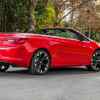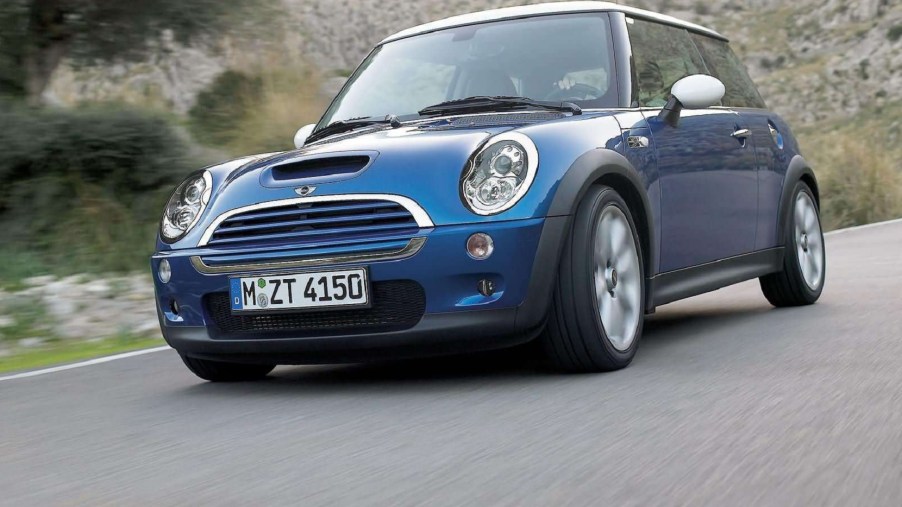
Which Used Mini Cooper Is the Most Reliable?
When it comes to reliability, Mini Coopers don’t necessarily have the best reputation. Which, if you’re thinking of buying a used Mini, is understandably an important concern. However, with some careful digging, finding a reliable used Mini Cooper is possible.
A guide to used Mini Cooper models
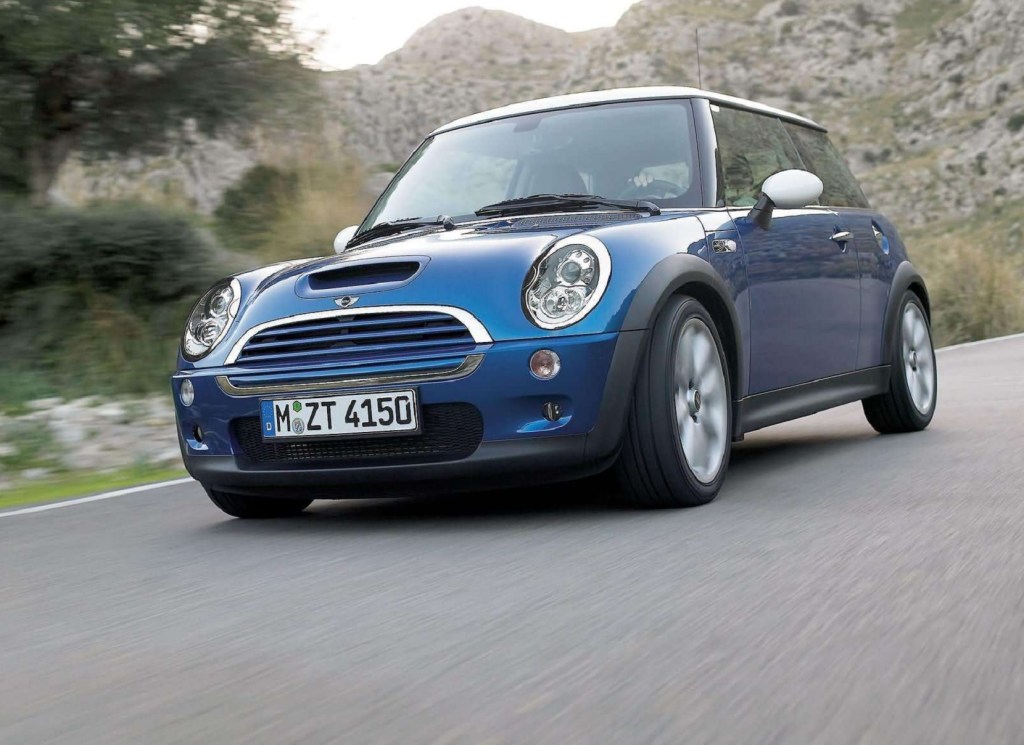
Although classic Minis are still plentiful, this guide focuses on the modern models, i.e., the ones built under BMW ownership. These models are split into three broad generations, Autotrader explains.
The first-gen 2002-2006 Mini Cooper lineup only consisted of two cars. There was the base Cooper, the ‘R50,’ and the Cooper S, the ‘R53,’ Lohen explains. Mid-way through the first-gen run, the ‘R52’ Convertible joined in. And in 2006, Mini released the first Cooper JCW and JCW GP.
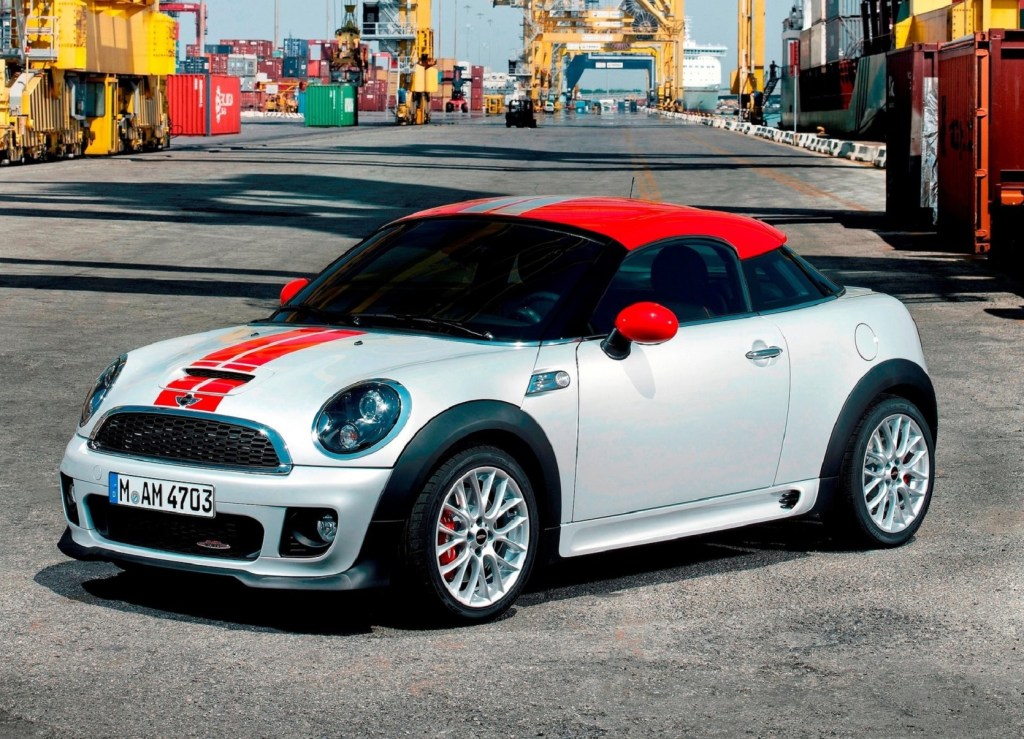
Next came the second-gen 2007-2013 Mini Cooper lineup, which was noticeably larger. In addition to the ‘R56’ Cooper/Cooper S and ‘R57’ Convertible, there was the ‘R55’ Clubman, the ‘R58’ Coupe, the ‘R590’ Roadster, and the ‘R60’ Countryman. There was also a 3-door version of the Clubman called the Paceman, but it wasn’t sold in the US. The JCW models, though, did make it here.
The current-generation Mini Cooper models fall under the ‘F generation’ umbrella. And now, the Clubman and Countryman are considered separate models. The ‘main’ lineup consists of the ‘F55’ 3-door and ‘F56’ 5-door Cooper and Cooper S, and the ‘F57’ Convertible. And, as before, there are JCW trims and the Mini Cooper JCW GP.
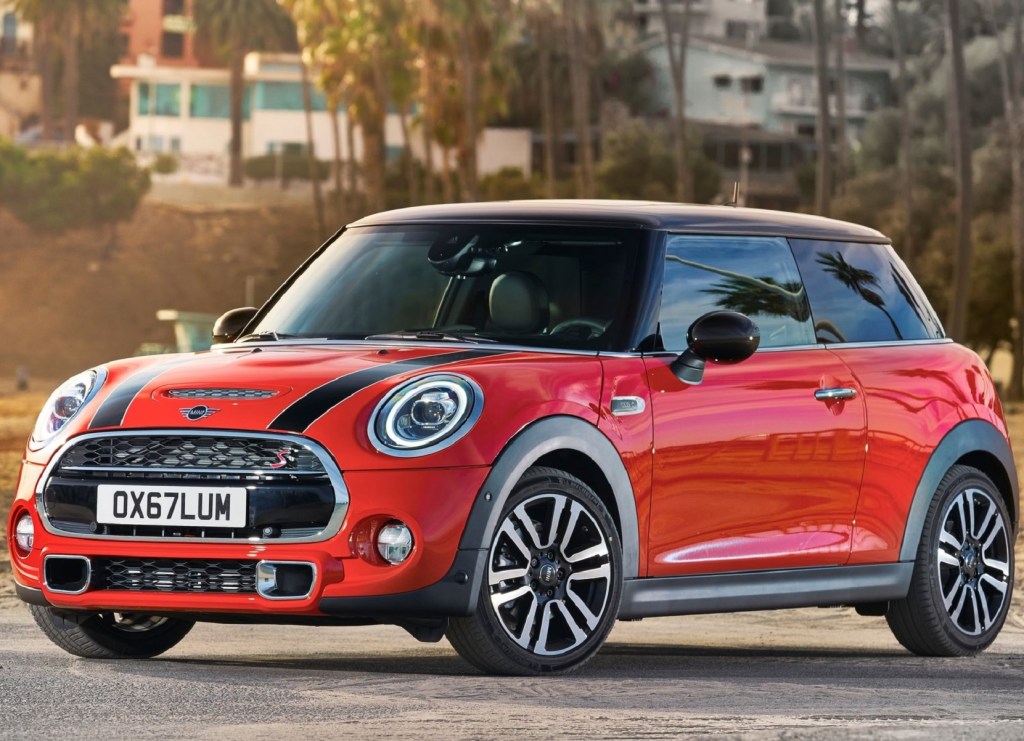
Contrary to its reputation, the latest Mini Coopers are reliable cars, MotoringFile reports. And they’ve gone from Consumer Reports ‘never buys’ to recommended vehicles. If you’re really concerned about reliability, based on CR reports, a used 2018-2020 Mini Cooper is arguably your best bet.
However, a first- or second-gen used Mini Cooper can still be reliable. It’s just a matter of picking the right one.
Older used Mini Cooper reliability depends on the model year and engine
Regarding used first-gen Mini Coopers, the last two model years are widely considered both the most desirable and reliable, Road & Track reports. That especially holds for the R53 Cooper S, which is the only S model with a supercharged engine. In 2005 it got more power, more features, and like the base Cooper, a better interior, CarThrottle reports.
But based on reports from CarComplaints, the 2005 Cooper and Cooper S are more problematic than the ’06 models. The 2006 cars also weren’t affected by the power-steering pump recall, Autoblog reports. In short, if you want a reliable used first-gen Mini Cooper, the 2006 MY is your best bet.
For second-gen Mini Coopers, the reliability question is a bit more complicated. CarComplaints found that 2007-2009 models were less problematic than the later ones, except for the Clubman and Countryman. As for the Cooper S and JCW models, Mini recalled the 2007-2011 models over water pump and turbocharger issues, Cars.com reports. Making things worse from a reliability standpoint, Consumer Reports specifically lists 2011-2013, along with 2015 models as ‘never buys.’
However, the reality is a little more nuanced—and it requires some engine knowledge. Initially, the second-gen Mini Cooper and Cooper S used the naturally-aspirated N12 and turbocharged N14 engines, respectively, Redline Autoparts reports. But in 2011, Mini installed the N/A N16 and turbocharged N18 engines in their place. And while the N18 isn’t perfect, it’s noticeably more reliable than the N14, Lohen reports.
The 2011 and 2012 Mini Cooper and Cooper S likely had some early teething issues. But the 2013 models mostly avoid these problems and the previously-mentioned recalls. So, for used second-gen Mini Coopers, the 2013 MY is the best choice for reliability. As for the Countryman and Clubman, based on CR findings, the third-gen models are the better choice.
A lack of maintenance causes problems even for reliable used Mini Coopers
Mini Coopers can have expensive problems, and that even includes the reliable examples listed above. However, at least some of these issues stem from improper maintenance, JCW Adventure reports.
Used first-gen Mini Cooper cooling systems contain many plastic components, and these often fail over time, Classic & Sports Car reports. The optional CVT automatic transmission is also a known problem source, as is the manual on pre-2005 R53s, MotoringFile reports. And in addition to coolant expansion tanks failing, oil leaks are somewhat common, R&T reports. However, R53 engines do normally consume a bit of oil, PistonHeads reports.
Regarding second-gen Mini reliability, the 2013 Cooper and Cooper S avoid the recalls and N12/N14-related issues, such as the timing chain ‘Death Rattle,’ JCW Adventures reports. However, the hatchbacks can still develop oil and coolant leaks, leading to potential head gasket and ECU failure, PH reports. Plus, Mini claimed the fuel filter and transmission oil were ‘lifetime’ parts, when, in fact, they aren’t, JCW Adventures reports. And like many direct-injection engines, the R56 cars often suffer from carbon buildup.
Are these issues deal-breakers?
As with any used vehicle, we recommend getting a pre-purchase inspection on any car you’re thinking of buying. That way, if there is a potential problem waiting in the wings, you can head it off. If possible, look for a used Mini with a known service history.
As for the Mini Cooper reliability issues we’ve noted here, they’re not necessarily the end of the world. While the original plastic coolant expansion tanks do fail, more durable metal replacements are available, Mini Mania reports. And while the R56’s engines aren’t trouble-free, they don’t share the BMW N20 and N26 engines’ problems. Plus, those leaks are usually age- or neglect-related. Ditto the carbon buildup, which can be removed.
True, some used Mini Coopers aren’t reliable. But not all of them are.
Follow more updates from MotorBiscuit on our Facebook page.


